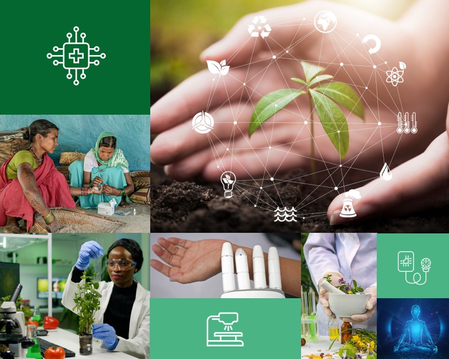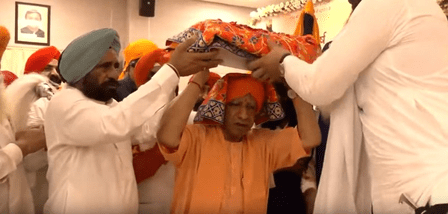New Delhi, July 13 (IANS) The World Health Organization (WHO) has acknowledged India’s pioneering efforts in integrating Artificial Intelligence (AI) with traditional medicine systems, particularly Ayush systems, said the Ministry of Ayush on Saturday.
In a significant milestone for India’s ancient healthcare systems, the WHO featured the country and its efforts to incorporate digital technologies into traditional medicine systems in its landmark technical brief titled “AI in Traditional Medicine”.
The recognition comes after India’s proposal on the subject, leading to the development of WHO’s first-ever roadmap for applying AI in traditional medicine, the Ministry said.
Welcoming the recognition, the Ministry called it “a testament to India’s leadership in creating a robust scientific ecosystem for traditional medicine”.
The India AI-led initiatives, mentioned in WHO’s technical brief, reflect the deep commitment of Indian scientists to advancing traditional medicine through cutting-edge technology, added Prataprao Jadhav, Union Minister of State (Independent Charge) for Ayush.
The initiatives mentioned include a range of AI-driven applications in Ayurveda, Siddha, Unani, Sowa Rigpa, and Homoeopathy, including diagnosis support systems that integrate traditional methods like pulse reading, tongue examination, and Prakriti assessment with machine learning algorithms and deep neural networks.
“By integrating AI with Ayush systems — and through pioneering digital platforms such as the SAHI portal, NAMASTE portal, and the Ayush Research Portal — India is not only safeguarding its centuries-old medical wisdom but also leading the way in shaping a future of personalised, evidence-based, and globally accessible healthcare,” said Jadhav.
The WHO brief also mentions Ayurgenomics — a scientific breakthrough that combines genomics with Ayurvedic principles. This initiative aims to identify predictive disease markers and personalise health recommendations using AI-based analysis of Ayurvedic constitution types.
Further, the document highlighted efforts to decode the genomic and molecular basis of herbal formulations for repurposing in modern disease conditions.
“Together, these AI-enabled platforms are not only preserving and validating India’s traditional knowledge systems of medicine but are also advancing their global integration within evidence-based, digital healthcare frameworks,” said Vaidya Rajesh Kotecha, Secretary, Ministry of Ayush.
The WHO technical brief also praises India’s initiatives to digitise traditional knowledge, such as the Traditional Knowledge Digital Library (TKDL) — a global model for the preservation and responsible use of indigenous medical heritage.
The document also applauds India’s broader efforts in incorporating digital platforms for online consultations, promoting digital literacy among Ayush practitioners, and building interoperable systems to integrate traditional medicine with mainstream healthcare.
–IANS
rvt/
Disclaimer
The information contained in this website is for general information purposes only. The information is provided by BhaskarLive.in and while we endeavour to keep the information up to date and correct, we make no representations or warranties of any kind, express or implied, about the completeness, accuracy, reliability, suitability or availability with respect to the website or the information, products, services, or related graphics contained on the website for any purpose. Any reliance you place on such information is therefore strictly at your own risk.
In no event will we be liable for any loss or damage including without limitation, indirect or consequential loss or damage, or any loss or damage whatsoever arising from loss of data or profits arising out of, or in connection with, the use of this website.
Through this website you are able to link to other websites which are not under the control of BhaskarLive.in We have no control over the nature, content and availability of those sites. The inclusion of any links does not necessarily imply a recommendation or endorse the views expressed within them.
Every effort is made to keep the website up and running smoothly. However, BhaskarLive.in takes no responsibility for, and will not be liable for, the website being temporarily unavailable due to technical issues beyond our control.
For any legal details or query please visit original source link given with news or click on Go to Source.
Our translation service aims to offer the most accurate translation possible and we rarely experience any issues with news post. However, as the translation is carried out by third part tool there is a possibility for error to cause the occasional inaccuracy. We therefore require you to accept this disclaimer before confirming any translation news with us.
If you are not willing to accept this disclaimer then we recommend reading news post in its original language.





